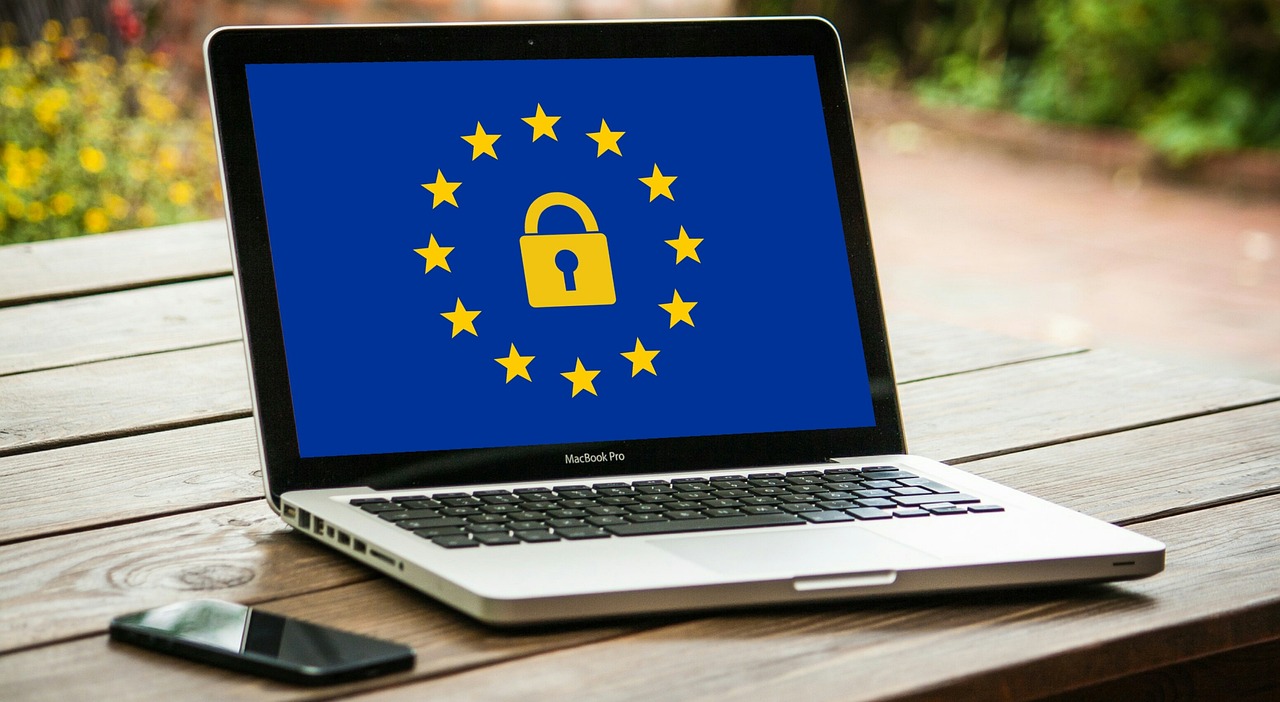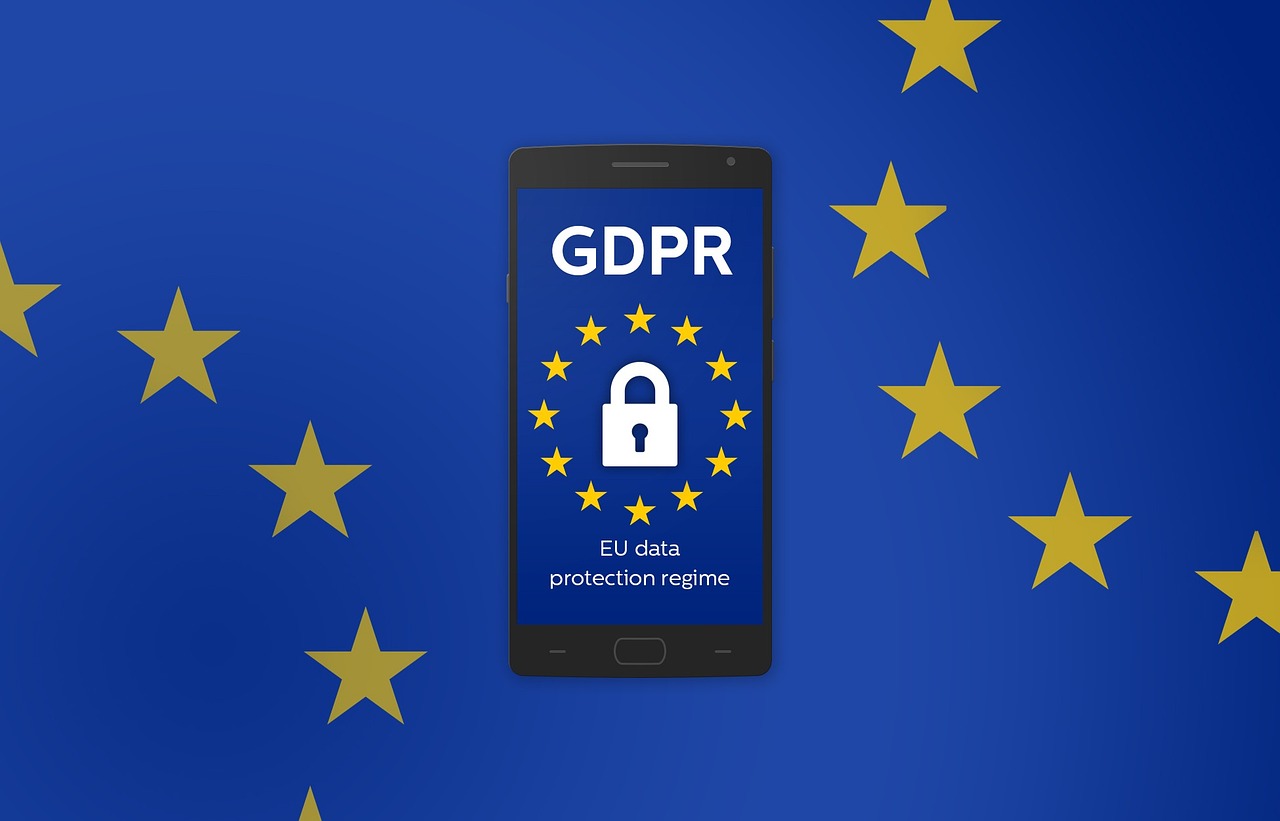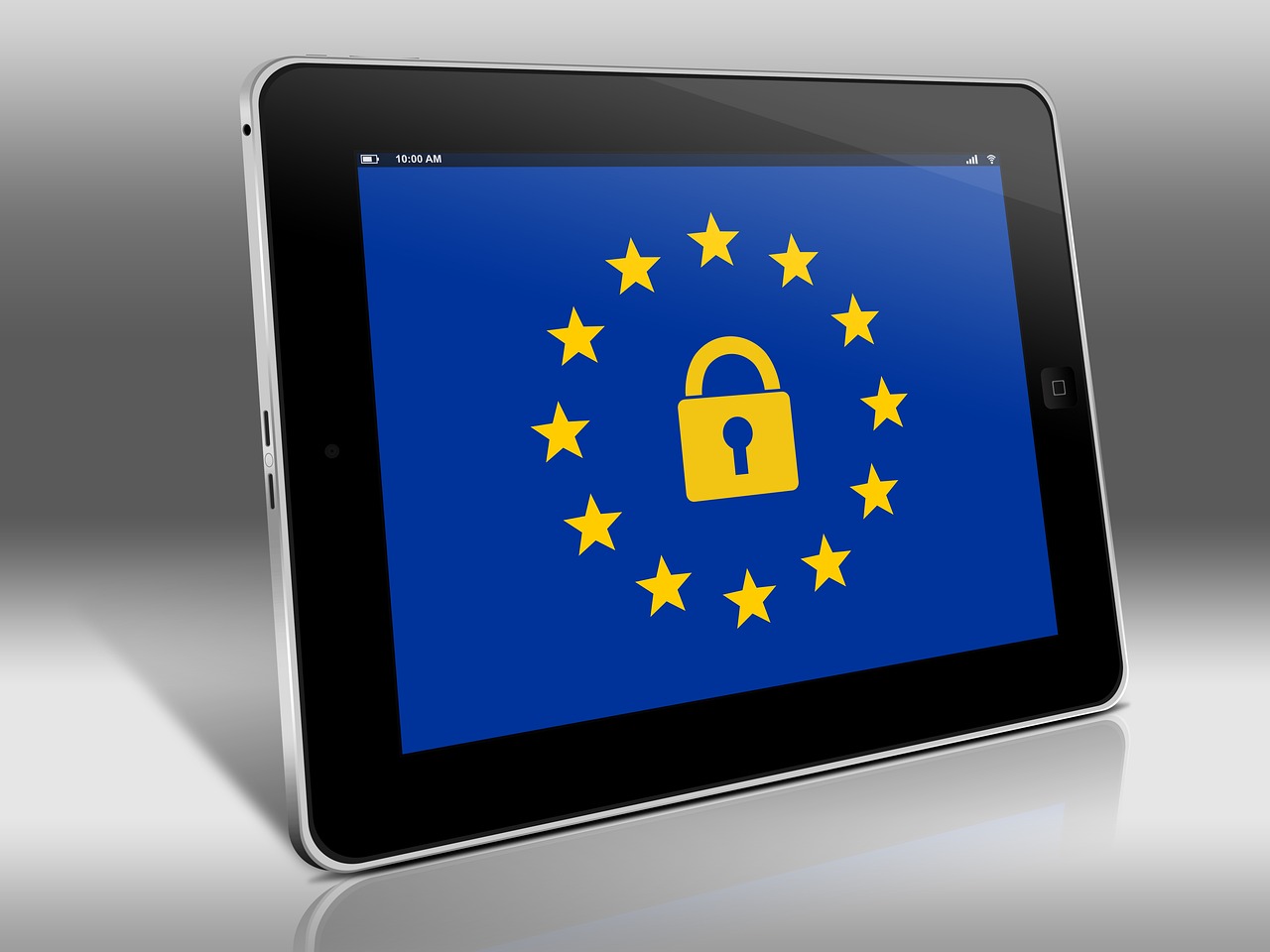How GDPR Affects Cryptocurrency Companies
The General Data Protection Regulation (GDPR) has become a cornerstone of data protection and privacy law across the European Union, and its implications stretch far beyond traditional businesses. As cryptocurrency companies continue to gain traction and popularity, they find themselves navigating a complex web of compliance challenges that GDPR presents. This regulation, which aims to protect the personal data of individuals, mandates that companies handle user information responsibly and transparently. So, how does this affect the dynamic world of cryptocurrency? Let's dive in!
First off, it’s essential to understand that GDPR isn’t just a set of rules; it’s a framework that enforces the rights of individuals regarding their personal data. For cryptocurrency firms, this means that every transaction, every user interaction, and every piece of data collected must adhere to stringent guidelines. Imagine trying to build a house while simultaneously ensuring that every brick meets specific safety standards—this is the balancing act that crypto companies must perform. They must innovate and provide cutting-edge services while ensuring compliance with GDPR, which can often feel like a tightrope walk.
One of the most significant challenges that cryptocurrency companies face is the decentralized nature of their operations. Unlike traditional businesses that can easily implement centralized data management systems, cryptocurrency firms often operate in a decentralized environment where data is distributed across multiple nodes. This can complicate compliance with GDPR, particularly regarding the handling of personal data and the need for transparency in data processing activities. It’s like trying to herd cats; each cat is independent, and getting them all to follow the same rules can be quite a task!
Furthermore, the principles of data minimization and purpose limitation outlined in GDPR require companies to collect only the data necessary for their operations and to clearly define the purposes for which they are collecting data. This can be particularly challenging in the cryptocurrency space, where user data may be seen as a valuable asset for marketing and operational strategies. However, it’s crucial for these firms to remember that respecting user privacy isn’t just about compliance; it’s about building trust with their user base. After all, in a world where data breaches are commonplace, users are becoming increasingly wary of how their information is handled.
As we explore the implications of GDPR on cryptocurrency companies, it’s clear that while the regulation poses challenges, it also presents opportunities for innovation. Firms that can navigate these waters effectively will not only comply with the law but will also stand out in a crowded marketplace by prioritizing user privacy and data protection. In the end, it’s about finding that sweet spot where compliance and innovation coexist, creating a safer and more trustworthy environment for all users.
- What is GDPR? GDPR stands for the General Data Protection Regulation, a law that governs how personal data is collected, stored, and processed in the EU.
- How does GDPR impact cryptocurrency companies? It requires them to handle user data responsibly, ensuring compliance with data protection rights and principles.
- What are the key principles of GDPR? The key principles include data minimization, purpose limitation, and user consent.
- Can cryptocurrency companies still market to users under GDPR? Yes, but they must obtain explicit consent and be transparent about how they use personal data.
- What happens if a cryptocurrency company fails to comply with GDPR? They may face significant fines and penalties, along with reputational damage.

Understanding GDPR Basics
The General Data Protection Regulation, commonly known as GDPR, is a comprehensive data protection law that was implemented across the European Union (EU) on May 25, 2018. Its primary aim is to enhance the protection of personal data for all individuals within the EU and the European Economic Area (EEA). This regulation not only impacts businesses operating within Europe but also affects companies outside the EU that process the personal data of EU citizens. In essence, GDPR serves as a framework that establishes strict guidelines on how personal data should be collected, stored, processed, and shared.
At its core, GDPR is built on several key principles that govern data protection and privacy. These principles include:
- Lawfulness, Fairness, and Transparency: Data processing must be lawful, fair, and transparent to the data subject.
- Purpose Limitation: Personal data should only be collected for specified, legitimate purposes and not further processed in a manner incompatible with those purposes.
- Data Minimization: Only the data that is necessary for the intended purposes should be collected.
- Accuracy: Personal data must be accurate and kept up to date.
- Storage Limitation: Personal data should be retained only for as long as necessary for the purpose for which it was processed.
- Integrity and Confidentiality: Data must be processed in a manner that ensures appropriate security, including protection against unauthorized or unlawful processing.
These principles are crucial for cryptocurrency companies, as they often handle sensitive personal data, including financial information and identification details. The decentralized nature of cryptocurrencies complicates compliance, as data may be stored across multiple locations and jurisdictions. Additionally, the rapid pace of innovation in the crypto space often clashes with the stringent requirements set forth by GDPR. This creates a challenging environment for firms striving to remain compliant while also pushing the boundaries of technology.
Understanding GDPR is not just about compliance; it’s about fostering trust with users. In a world where data breaches and privacy concerns are rampant, users are becoming increasingly aware of their rights regarding their personal information. GDPR empowers individuals with rights such as the right to access, rectify, and erase their data, making it essential for cryptocurrency companies to prioritize transparency and user control over personal data.
In summary, GDPR is more than just a set of rules; it represents a cultural shift towards prioritizing individual privacy and data protection. As cryptocurrency firms navigate this complex regulatory landscape, they must balance innovation with compliance, ensuring that they not only adhere to the law but also build lasting relationships with their users based on trust and respect for their personal data.

GDPR Compliance Challenges for Cryptocurrency Firms
Cryptocurrency firms are navigating a complex landscape when it comes to GDPR compliance. The decentralized nature of cryptocurrencies poses unique challenges that traditional businesses may not face. Unlike conventional companies that operate within a defined jurisdiction, cryptocurrency firms often operate globally, making it difficult to adhere to the diverse regulations of different regions. This global reach complicates compliance efforts, as firms must ensure that they are meeting GDPR requirements while also respecting local laws in various countries.
One of the most significant challenges is the handling of personal data. Cryptocurrency companies often collect a variety of personal information from users, including email addresses, wallet addresses, and transaction histories. Under GDPR, organizations are required to have a clear understanding of what data they collect and how it is used. This requirement for transparency can be particularly daunting for firms that prioritize anonymity and decentralization in their operations. The need to balance these principles with GDPR compliance can create a paradox that is difficult to navigate.
Moreover, the right to access and the right to be forgotten present additional hurdles. Users have the right to request access to their personal data and demand its deletion. For cryptocurrency firms, which often operate on a blockchain where data is immutable, fulfilling these requests can be problematic. How do you delete a transaction that is permanently recorded on a blockchain? This question highlights the inherent conflict between the principles of blockchain technology and the requirements of GDPR.
To tackle these compliance challenges, cryptocurrency companies must adopt a proactive approach. This involves not only understanding the intricacies of GDPR but also implementing robust data protection strategies. Here are some key areas where firms need to focus:
- Data Mapping: Understanding what data is collected, where it is stored, and how it is processed.
- Regular Audits: Conducting audits to ensure ongoing compliance and identify potential vulnerabilities in data management practices.
- User Education: Informing users about their rights under GDPR and how their data is being used can foster trust and transparency.
In addition to these strategies, cryptocurrency firms must also invest in technology solutions that enhance their compliance efforts. This might include adopting advanced encryption methods, implementing data access controls, and utilizing privacy-by-design principles in their product development processes. The goal is to create a culture of compliance that permeates every aspect of the organization.
Ultimately, while GDPR presents significant challenges for cryptocurrency firms, it also offers an opportunity for these companies to differentiate themselves in a crowded market. By prioritizing data protection and user privacy, they can build stronger relationships with their customers and establish themselves as trustworthy players in the crypto space. As the regulatory landscape continues to evolve, those companies that adapt and embrace compliance will be better positioned to thrive in the future.

Data Minimization and Purpose Limitation
The principles of data minimization and purpose limitation are at the heart of the GDPR, and they play a crucial role in how cryptocurrency companies handle personal data. At its core, data minimization means that organizations should only collect and process personal data that is necessary for the specific purposes they have defined. This principle challenges many cryptocurrency firms, as they often operate in a decentralized manner and may be tempted to gather as much data as possible to enhance their services. However, under GDPR, less is indeed more.
Purpose limitation, on the other hand, dictates that personal data should only be collected for legitimate, specified purposes and cannot be processed in a manner incompatible with those purposes. For cryptocurrency companies, this means they must be transparent about why they are collecting data and how they plan to use it. Imagine trying to navigate a maze without knowing the exit; it’s just as disorienting for users when companies don’t clarify their data practices. If users are unsure about how their information will be used, they may hesitate to engage with the services offered.
To effectively implement these principles, cryptocurrency firms need to adopt clear strategies. For instance, they might consider the following:
- Assessing Data Necessity: Regularly review what data is being collected and determine if it’s essential for operations.
- Defining Clear Purposes: Establish specific reasons for data collection and communicate these to users at the point of data gathering.
- Regular Audits: Conduct audits to ensure compliance with data minimization and purpose limitation principles.
By adhering to these principles, cryptocurrency companies can not only comply with GDPR but also foster a sense of trust with their users. When users see that a company respects their privacy and only collects necessary information, they are more likely to engage with the platform. This trust is invaluable in a space that is often seen as risky and unregulated.
In summary, data minimization and purpose limitation are not just regulatory hurdles; they are opportunities for cryptocurrency companies to build stronger relationships with their users. By focusing on what truly matters and communicating effectively, these firms can navigate the complexities of GDPR while maintaining their innovative edge in the market.

Implementing Data Minimization Strategies
In the world of cryptocurrency, where data is the new gold, implementing data minimization strategies is not just a regulatory requirement—it's a fundamental principle that can build trust and credibility. The GDPR mandates that companies should only collect data that is absolutely necessary for their operations, which can be a tall order for cryptocurrency firms that often operate in a decentralized manner. So, how can these companies effectively minimize the data they collect while still providing their services? Let's dive into some practical strategies.
First and foremost, it's essential for cryptocurrency businesses to assess their data collection practices. This involves reviewing what types of data are currently being collected, why they are being collected, and whether each piece of data serves a legitimate purpose. For instance, does a cryptocurrency exchange really need to know a user's favorite color, or is it sufficient to collect their email address for account verification? By critically evaluating their data needs, firms can streamline their operations and adhere to GDPR's data minimization principle.
Another effective strategy is to implement anonymization techniques. By anonymizing data, companies can still gain valuable insights without compromising user privacy. For example, if a cryptocurrency platform wants to analyze trading patterns, they can do so using aggregated data instead of individual user data. This not only aligns with GDPR requirements but also enhances user trust, as clients feel more secure knowing their personal information is protected.
Moreover, companies should consider adopting a privacy-by-design approach. This means integrating data protection measures into the development of new products and services from the outset. By doing so, firms can ensure that they are only collecting necessary information and that they have robust systems in place to manage and protect that data. For instance, if a new wallet feature is being developed, the team should ask: What data do we need to operate this feature? Can we achieve the same functionality with less data?
Finally, ongoing employee training is crucial. All staff members should be aware of GDPR requirements and the importance of data minimization. Regular workshops and training sessions can equip employees with the knowledge to identify unnecessary data collection practices and encourage a culture of privacy within the organization. This proactive approach can significantly reduce the risk of non-compliance and foster a more privacy-conscious workplace.
By implementing these data minimization strategies, cryptocurrency firms can navigate the complex landscape of GDPR compliance while maintaining user trust and enhancing their overall operational efficiency. Remember, in the world of data, less is often more!
- What is data minimization? Data minimization refers to the practice of limiting data collection to only what is necessary for a specific purpose.
- How can cryptocurrency companies implement data minimization? By assessing data collection practices, anonymizing data, adopting a privacy-by-design approach, and providing employee training.
- Why is data minimization important for compliance? It helps companies comply with GDPR regulations and builds trust with users by protecting their personal information.

Defining Data Processing Purposes
In the ever-evolving landscape of cryptocurrency, is not just a regulatory box to check; it’s a fundamental practice that can either make or break user trust. Under the GDPR, every piece of personal data collected must serve a specific purpose, and this is particularly crucial for cryptocurrency companies that operate in a space where user anonymity and privacy are paramount. Think of it this way: when you walk into a store, you expect them to know why they’re collecting your information, right? The same principle applies here.
For cryptocurrency firms, it’s essential to articulate why they need to collect personal data. Common purposes might include:
- Account Creation: To allow users to create and manage their cryptocurrency wallets.
- Transaction Processing: To facilitate the buying, selling, or trading of cryptocurrencies.
- Regulatory Compliance: To meet legal obligations, such as anti-money laundering (AML) checks.
- Customer Support: To provide assistance and resolve issues that users may encounter.
However, it’s not enough to simply state these purposes; companies must also ensure that the data collected is directly relevant and limited to what is necessary for these purposes. This principle, known as data minimization, complements the idea of defining data processing purposes. If a cryptocurrency platform claims to collect data for transaction processing, it should not gather unrelated information, like users' social media profiles or browsing history. Such practices could not only breach GDPR regulations but also alienate users who value their privacy.
Moreover, transparency is key. Cryptocurrency companies should communicate their data processing purposes clearly in their privacy policies. This not only fulfills a legal obligation but also fosters a sense of trust and security among users. Imagine if your favorite crypto exchange suddenly started using your data for purposes you never agreed to; you’d likely feel uneasy about using their services again. By being upfront about how personal data will be used, companies can build a loyal user base that feels respected and valued.
In summary, defining data processing purposes is a critical step for cryptocurrency companies navigating the complex terrain of GDPR compliance. It’s not just about following the rules; it’s about creating a transparent, trustworthy environment where users feel safe to engage with digital currencies. As the crypto landscape continues to mature, the companies that prioritize clear and ethical data practices will undoubtedly stand out in the crowded marketplace.
- What is GDPR? GDPR stands for the General Data Protection Regulation, a comprehensive data protection law in the EU that governs how personal data is collected, processed, and stored.
- How does GDPR affect cryptocurrency companies? GDPR imposes strict rules on how cryptocurrency firms handle personal data, requiring them to be transparent about data usage and obtain explicit consent from users.
- What are the consequences of non-compliance with GDPR? Non-compliance can lead to hefty fines, legal action, and damage to a company’s reputation, which can be especially detrimental in the competitive crypto market.
- Can cryptocurrency companies use personal data for marketing? Yes, but they must obtain explicit consent from users and clearly define how their data will be used for marketing purposes.

Rights of Data Subjects in Cryptocurrency
The General Data Protection Regulation (GDPR) empowers individuals with a set of rights that are crucial for maintaining control over their personal data. For users of cryptocurrency services, understanding these rights is not just a matter of compliance for companies; it’s about ensuring that users feel secure and informed in a rapidly evolving digital landscape. The rights granted to data subjects under GDPR include the right to access, rectify, and erase personal data, among others. These rights are fundamental in fostering trust between cryptocurrency companies and their users.
Firstly, the right to access allows users to request information about the personal data that a cryptocurrency company holds about them. This means that if you’re a user of a crypto exchange, you can ask, “What data do you have on me?” and the company must provide a clear and concise answer. This transparency not only satisfies legal obligations but also helps users feel more in control of their information.
Next up is the right to rectify. Imagine you’ve made a mistake while entering your personal information when signing up for a new wallet. Under GDPR, you have the right to correct this information. Cryptocurrency firms must have processes in place to allow users to easily update their data, ensuring accuracy and reliability in their records.
Additionally, users have the right to erasure, often referred to as the “right to be forgotten.” This means that if you decide you no longer want your personal data stored by a cryptocurrency firm, you can request its deletion. However, this right isn’t absolute; firms can retain data for legal compliance or legitimate business interests. This balance is crucial as it protects both user privacy and the operational needs of the business.
Moreover, users also enjoy the right to data portability. This right allows individuals to obtain and reuse their personal data across different services. For instance, if you decide to switch from one cryptocurrency platform to another, you should be able to transfer your data seamlessly. This is particularly important in an industry where users often shift between platforms in search of better services or lower fees.
Finally, the right to object gives users the ability to challenge the processing of their personal data in certain circumstances, such as when data is being used for direct marketing purposes. Cryptocurrency companies need to be aware of this right and ensure that they provide users with clear options to opt out of such practices.
In summary, the rights of data subjects under GDPR are designed to empower users and enhance their control over personal data, which is especially important in the cryptocurrency landscape. As these rights become more entrenched, cryptocurrency firms must adapt their policies and practices to ensure compliance while fostering a culture of transparency and trust. This not only protects users but also positions companies as leaders in ethical data handling, which can be a significant competitive advantage in the crowded crypto market.
- What are the key rights of data subjects under GDPR? The key rights include the right to access, rectify, erase, data portability, and object to data processing.
- How can cryptocurrency companies ensure they comply with these rights? By implementing clear policies, training staff, and utilizing technology to manage user data effectively.
- Can users request deletion of their data at any time? Users can request deletion, but companies may retain data for legal or operational reasons.
- What should users do if they believe their rights are being violated? Users should contact the company directly and may also lodge a complaint with a supervisory authority.

Impact on Cryptocurrency Marketing Practices
The implementation of the General Data Protection Regulation (GDPR) has sent ripples through the marketing strategies of cryptocurrency companies. These firms, once able to operate with a certain level of data anonymity, now find themselves navigating a complex web of compliance requirements that dictate how they can engage with their audience. Imagine trying to sail a boat in a storm; that’s how many crypto marketers feel about GDPR. They need to adjust their sails to ensure they stay afloat while still reaching their destination—effective marketing.
One of the most significant shifts is the necessity of obtaining explicit user consent for data processing activities. Gone are the days when companies could simply assume consent by default. Now, cryptocurrency firms must actively seek permission from users before collecting or utilizing their personal data. This means that every marketing campaign needs to be carefully crafted to include clear consent mechanisms, which can sometimes feel like trying to read a map in the dark. Not only does this ensure compliance, but it also fosters a culture of trust between the company and its users. After all, who wouldn’t appreciate being asked before their data is used?
Moreover, transparency and user communication have become paramount. Cryptocurrency companies are now required to be crystal clear about how they use personal data. This includes providing comprehensive privacy policies and timely notifications to users about any changes in data usage. Think of it as a relationship: the more open and honest you are, the stronger the bond you build. Transparency not only aligns with GDPR mandates but also enhances user trust, which is invaluable in the crypto space where skepticism can run high.
In practice, this means that marketing teams must rethink their strategies. Instead of bombarding potential customers with targeted ads based on their previous online behavior, they need to focus on creating value-driven content that resonates with users. This could involve educational resources, engaging blog posts, or interactive webinars that empower users to make informed decisions about their cryptocurrency investments. By doing so, companies can cultivate a loyal customer base that appreciates their respect for privacy and data protection.
To illustrate how GDPR impacts marketing practices, consider the following table that outlines the key changes in marketing strategies for cryptocurrency companies:
| Marketing Aspect | Before GDPR | After GDPR |
|---|---|---|
| User Consent | Assumed consent for data collection | Explicit consent required |
| Data Usage Transparency | Vague privacy policies | Clear and detailed privacy policies |
| Targeted Advertising | Extensive use of personal data for ads | Limited use; focus on value-driven content |
| User Engagement | Reactive marketing strategies | Proactive and educational approaches |
As cryptocurrency companies adapt to these changes, they are not only ensuring compliance with GDPR but also redefining their marketing practices for the better. By prioritizing user consent and transparency, they can build lasting relationships with their customers, ultimately leading to a more sustainable business model. It’s a challenging yet rewarding journey that requires creativity and a commitment to ethical practices.
- What is GDPR?
GDPR stands for General Data Protection Regulation, a law in the European Union that governs data protection and privacy.
- How does GDPR affect cryptocurrency marketing?
GDPR requires cryptocurrency companies to obtain explicit user consent for data processing and to be transparent about how they use personal data.
- What should cryptocurrency companies do to comply with GDPR?
They should ensure clear consent mechanisms, maintain transparent privacy policies, and focus on value-driven engagement rather than aggressive targeted advertising.
- Why is user trust important in cryptocurrency marketing?
User trust is crucial as it fosters loyalty and encourages users to engage with the brand, especially in an industry often viewed with skepticism.

Obtaining User Consent
In the world of cryptocurrency, obtaining user consent is not just a regulatory checkbox; it’s a fundamental aspect of building trust with users. Under the General Data Protection Regulation (GDPR), companies must ensure that they have explicit consent from users before processing their personal data. This requirement can be a bit of a maze for cryptocurrency firms, especially considering the decentralized nature of blockchain technology and the often-anonymous transactions that characterize the crypto space.
So, how can cryptocurrency companies navigate this complex landscape? First and foremost, it's essential to understand that consent must be informed. This means that users should be fully aware of what they are consenting to. Companies need to provide clear and concise information about what personal data they are collecting, how it will be used, and who it will be shared with. Imagine walking into a store and being handed a contract without any explanation – it’s confusing and feels a bit shady, right? The same principle applies here. Users deserve transparency.
To effectively obtain consent, cryptocurrency firms can implement several strategies, including:
- Clear Consent Mechanisms: Utilize checkboxes or toggle switches that require users to actively opt-in to data processing activities. Pre-ticked boxes are a big no-no!
- User-Friendly Privacy Notices: Design privacy policies that are easy to understand, avoiding jargon and legalese. A well-structured FAQ section can help clarify common concerns.
- Regular Consent Refresh: As services evolve, so too should the consent obtained from users. Regularly prompt users to review and renew their consent, especially when there are changes to data processing practices.
Moreover, companies should consider offering granular consent options, allowing users to choose what specific data they are comfortable sharing. For instance, a user might be fine with sharing their email for account verification but may not want their transaction history to be used for marketing purposes. This level of customization can significantly enhance user trust and engagement.
It's also vital to provide users with an easy way to withdraw their consent at any time. This is not merely a suggestion; it's a requirement under GDPR. If a user decides they no longer want their data processed, they should be able to do so with minimal hassle. Think of it as a relationship – if someone wants to break up, it should be straightforward, not a drawn-out process filled with red tape.
In conclusion, obtaining user consent in the cryptocurrency sector is about more than just compliance; it’s about fostering a culture of trust and respect for user privacy. By prioritizing transparency, clarity, and user empowerment, cryptocurrency companies can not only meet GDPR requirements but also build lasting relationships with their users. After all, in a world where data is currency, trust is invaluable.

Transparency and User Communication
In the world of cryptocurrency, where trust is paramount, transparency and effective user communication play crucial roles. With the advent of the General Data Protection Regulation (GDPR), cryptocurrency companies are now faced with the challenge of not only complying with legal requirements but also fostering a sense of trust among their users. But what does transparency really mean in this context? It’s all about being open and honest about how user data is collected, processed, and utilized. Users want to know what happens to their personal information, and companies must be ready to provide clear answers.
One of the most effective ways to ensure transparency is through comprehensive privacy policies. These documents should not be legal jargon-filled texts that only a lawyer could decipher. Instead, they should be written in a user-friendly manner, explaining in simple terms what data is collected, why it’s collected, how it will be used, and who it will be shared with. For instance, if a cryptocurrency platform collects email addresses for newsletters, this should be explicitly stated along with the option for users to opt-in or opt-out. This not only aligns with GDPR mandates but also builds trust.
Additionally, regular user notifications about data usage are essential. Cryptocurrency companies should proactively inform users about any changes in data processing practices or privacy policies. Imagine you’re a user who just signed up for a new crypto wallet, and a month later, you receive an email notifying you about a change in how your data will be handled. This kind of communication can make users feel valued and respected, reinforcing their trust in the platform.
Moreover, cryptocurrency companies should consider implementing user-friendly interfaces that allow users to easily access their data and manage their privacy settings. For example, a dashboard where users can see what data is stored, request corrections, or even delete their accounts can empower users and enhance their overall experience. This aligns perfectly with GDPR’s emphasis on user rights, enabling individuals to take control of their personal information.
To summarize, embracing transparency and effective user communication is not just about compliance; it’s about building a loyal customer base in the competitive cryptocurrency landscape. Companies that prioritize these aspects are likely to see not only compliance with regulations but also an increase in user trust and engagement. By being open about data practices and facilitating easy communication, cryptocurrency firms can navigate the complexities of GDPR while positioning themselves as trustworthy entities in the eyes of their users.
- What is the importance of transparency in cryptocurrency?
Transparency helps build trust between users and cryptocurrency companies, ensuring users feel safe about how their data is handled. - How can cryptocurrency companies comply with GDPR?
By creating clear privacy policies, obtaining user consent, and communicating changes effectively. - What rights do users have under GDPR?
Users have the right to access, rectify, and erase their personal data, among other rights.

Future Implications for Cryptocurrency Regulation
As we look towards the future, the implications of GDPR on cryptocurrency regulation are becoming increasingly clear. With the rapid evolution of technology and the growing adoption of cryptocurrencies, regulatory bodies are faced with the challenge of developing frameworks that not only protect consumers but also foster innovation. The intersection of GDPR and cryptocurrency regulation is like walking a tightrope; it requires a delicate balance between ensuring data protection and allowing the industry to thrive.
One of the most significant implications is the potential for new regulatory frameworks that specifically address the unique challenges posed by cryptocurrencies. As GDPR continues to evolve, we may see the emergence of regulations tailored to the decentralized nature of cryptocurrency transactions. This could lead to a more structured approach to data protection, where companies are required to implement robust measures to safeguard personal information.
Moreover, the concept of data sovereignty is likely to gain traction. As cryptocurrencies operate on a global scale, the question of which jurisdiction's laws apply can become convoluted. Future regulations may need to clarify how GDPR applies to companies operating across borders. This could involve establishing clearer guidelines on data transfer and processing, ensuring that users' rights are upheld regardless of where the company is based.
Another important aspect to consider is the role of technology in compliance. Innovations such as blockchain technology could provide solutions to some of the compliance challenges faced by cryptocurrency firms. For instance, decentralized identity solutions may allow users to control their personal data while still complying with GDPR requirements. This not only enhances user privacy but also aligns with the principles of data minimization and purpose limitation.
However, as companies adapt to these changes, there will be an increasing need for transparency in their operations. Cryptocurrency firms will have to openly communicate their data processing activities and how they align with GDPR. This will not only build trust with users but also ensure compliance with regulatory expectations. The importance of clear and accessible privacy policies cannot be overstated. Firms that fail to provide this transparency may find themselves facing significant penalties.
In conclusion, the future of cryptocurrency regulation in light of GDPR is poised for transformation. As regulators seek to protect consumers while promoting innovation, we can expect to see a more dynamic legal landscape that addresses the unique characteristics of the cryptocurrency sector. Companies that proactively embrace these changes and prioritize compliance will not only safeguard their operations but also contribute to a more trustworthy and sustainable crypto ecosystem.
- What is GDPR?
GDPR stands for the General Data Protection Regulation, a comprehensive data protection law in the EU that governs how personal data is collected and processed. - How does GDPR affect cryptocurrency companies?
GDPR imposes strict requirements on how cryptocurrency companies handle personal data, including obtaining user consent and ensuring data protection rights. - What are the rights of data subjects under GDPR?
Users have the right to access, rectify, and erase their personal data, among other rights, which cryptocurrency firms must respect. - Will there be new regulations for cryptocurrencies?
Yes, as GDPR evolves, we can expect new regulations that specifically address the unique challenges and opportunities presented by cryptocurrencies.
Frequently Asked Questions
- What is GDPR and why is it important for cryptocurrency companies?
GDPR, or the General Data Protection Regulation, is a set of regulations that governs how personal data is collected, processed, and stored in the European Union. For cryptocurrency companies, GDPR is crucial because it ensures that user data is handled with care and respect, fostering trust and compliance in a sector often viewed as risky.
- What are the main compliance challenges faced by cryptocurrency firms under GDPR?
Cryptocurrency firms encounter unique challenges such as their decentralized nature, which complicates data ownership and processing. Additionally, they must navigate the complexities of ensuring transparency in data practices while also protecting user privacy, making compliance a multifaceted endeavor.
- How can cryptocurrency companies implement data minimization strategies?
To comply with GDPR, cryptocurrency companies can adopt data minimization strategies by only collecting the information that is absolutely necessary for their operations. This means evaluating their data collection processes and eliminating any unnecessary data points, which not only helps with compliance but also builds user trust.
- What rights do users have under GDPR when using cryptocurrency services?
Users have several rights under GDPR, including the right to access their personal data, the right to rectify inaccuracies, and the right to request the deletion of their data. Cryptocurrency companies must ensure that they have processes in place to facilitate these rights, providing users with control over their personal information.
- How does GDPR affect cryptocurrency marketing practices?
GDPR significantly impacts marketing practices by requiring cryptocurrency companies to obtain explicit consent from users before processing their personal data for marketing purposes. This means that firms need to be transparent about how they use data and ensure that their marketing strategies align with GDPR guidelines to avoid hefty fines.
- What steps should cryptocurrency companies take to obtain user consent?
To obtain user consent, cryptocurrency companies should clearly communicate what data is being collected and for what purposes. They can use simple, straightforward language in their consent forms and ensure that users have the option to opt-in rather than opt-out, making the process transparent and user-friendly.
- Why is transparency in data usage important for cryptocurrency firms?
Transparency in data usage is vital for building trust with users and complying with GDPR mandates. When cryptocurrency firms openly communicate their data practices through clear privacy policies and user notifications, they not only adhere to regulations but also foster a sense of security among their users.
- What are the future implications of GDPR for the cryptocurrency industry?
As GDPR continues to evolve, its implications for the cryptocurrency industry may lead to new regulatory frameworks and guidelines. This ongoing development will shape how data protection is approached in the crypto space, potentially influencing everything from user privacy to operational compliance.



















